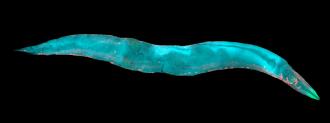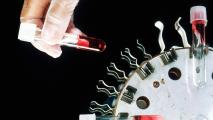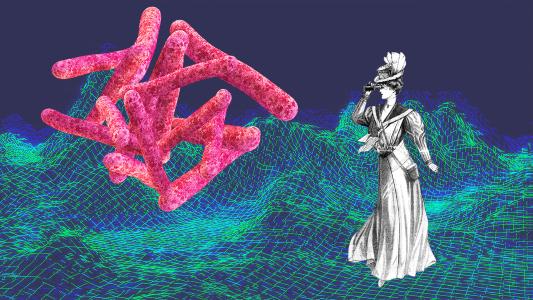Genetically modified worms that react to the urine of people with cancer could be used for routine pancreatic cancer screening, helping doctors diagnose the deadly disease earlier, when treatments are more effective.
Pancreatic cancer screening: Some cancers are easier to spot early than others, and pancreatic cancer is on the difficult end of the spectrum.
Patients typically don’t experience symptoms until the cancer is advanced or has spread, and because the pancreas is located deep within the body, it’s hard for doctors to spot tumors during physical exams.
A cheap, reliable pancreatic cancer screening method could increase early diagnoses of the disease.
People at high risk of developing pancreatic cancer due to their genetics or family history can ask their doctors to screen them for the disease using imaging (MRIs, ultrasounds, etc.) or blood tests — but the former can be expensive, while the latter can be expensive and unreliable.
The idea: A cheap, reliable pancreatic cancer screening method could increase early diagnoses of the disease, and researchers at Hirotsu Bio Science and the Osaka University think worms might be able to help create one.
Researchers have long known that cancer can cause changes in how people smell — this is how some dogs are able to smell cancer in a person’s breath or urine.
C. elegans are millimeter-long worms with a naturally strong sense of smell — and with a little genetic modification, the researchers were able to get the creatures to react to the scent of pancreatic cancer in urine.
“The new test could help boost routine screening as urine samples can be collected at home.”
Takaaki Hirotsu
The testing: When tested using urine samples from 95 healthy patients and 104 people with pancreatic cancer, the worms correctly identified 57 healthy patients and 88 cancer patients.
A sensitivity of 84.6% and specificity of 60% is not great — incorrectly flagging 40% of people who don’t have cancer — but depending on the test’s final cost and improvements in accuracy, it may be useful for pancreatic cancer screening for high-risk individuals, letting people know they might want to ask their doctor to run additional tests.
“The new test is not meant to diagnose pancreatic cancer, but could help boost routine screening as urine samples can be collected at home without the need for a hospital visit,” CEO Takaaki Hirotsu said at a press conference.
We’d love to hear from you! If you have a comment about this article or if you have a tip for a future Freethink story, please email us at tips@freethink.com.






